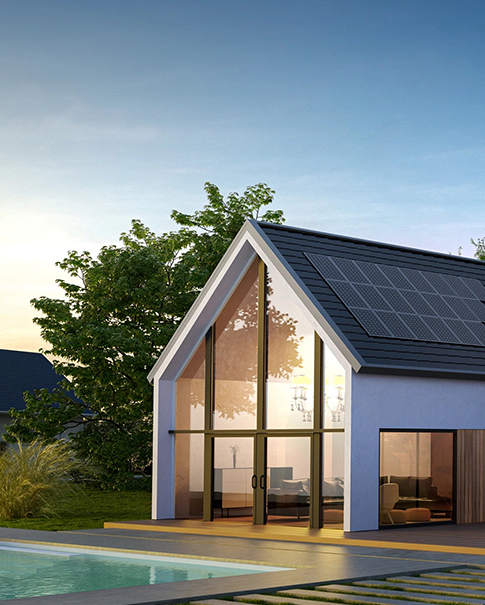-
Make a Call : +86 -13244735151
-
Get A Estimate : chris@keyuenewenergy.com
What Are You Looking For?
What Are You Looking For?
Make a Call : +86 -13244735151
Get A Estimate : chris@keyuenewenergy.com

What is solar grid micro inverter?
June 12, 2024It takes more than just sunlight to unleash the power of solar panels. An inverter is an important part of every solar panel system. Think of it this way: solar panels take energy from the sun. The inverter utilizes that energy to produce electricity that is compatible with your home.
More specifically, solar grid micro inverter convert the direct current (DC) generated by solar panels into alternating current (AC) that can be used by household appliances. These solar panel systems come in a variety of shapes and sizes, which helps improve the overall efficiency of the system.
While traditional string inverters connect multiple panels to a single inverter, microinverters operate at the individual panel level. They can optimize the conversion process to increase the efficiency of your solar panel system. Let's take a deeper look at microinverters, their technology, and how they compare to other inverters.
Solar grid tie micro inverter convert electricity from solar panels into usable electricity. Unlike centralized string inverters, which are usually responsible for the entire solar panel system, microinverters are installed at individual solar panel sites. Most solar panel systems with microinverters include a microinverter at each panel, but it is not uncommon for a single microinverter to be connected to a handful of panels.
Microinverters are categorized as Module Level Power Electronics (MLPE). Each microinverter operates independently of the other inverters in the system at the panel site. The independence of microinverters is very beneficial for complex installations or installations with shading. Due to its centralization, traditional string inverter technology operates at the lowest performing panel level. With microinverters, the solar panels have their own inverter, and even if one panel doesn't produce as much power as the others, it will continue to operate efficiently.
Microinverters are an excellent investment for most solar shoppers, especially if you have a complex roof or a roof with partial shading. Microinverters operate at the panel level and do not require a power optimizer to quickly shut down compliance and optimization. If a microinverter has a problem, only the panels connected to it will shut down, not the entire system. Microinverters typically diagnose and fix problems faster than central string inverters.
Microinverters are usually more expensive than string inverters. While better overall system performance may be obtained with microinverters, it is important to ensure that the long-term performance benefits outweigh the upfront costs. Microinverters are also located on the roof, which makes maintenance more difficult (and more costly if your warranty does not cover labor). Alternatively, string inverters are often more conveniently placed on the side of the house.
Many homeowners choose microinverters. They are the most popular choice on EnergySage. Part of the reason is their improved performance. Some installers also prefer them, which means they include them in their quotes more frequently.
Microinverters are a good choice if your roof has multiple flat surfaces facing different directions. They also make sense if your roof is shaded or angled differently throughout the day. Let's say you have some panels facing east and others facing south. In this case, the microinverters optimize performance by isolating production issues for each panel.
However, if you have a south-facing roof plane and no shading, we recommend that you discuss different options with our installers. In this case, microinverters may not be worth the extra cost.
How do microinverters compare to other types of solar inverters?
Contact Shenzhen Keyue New Energy Co. for more information.